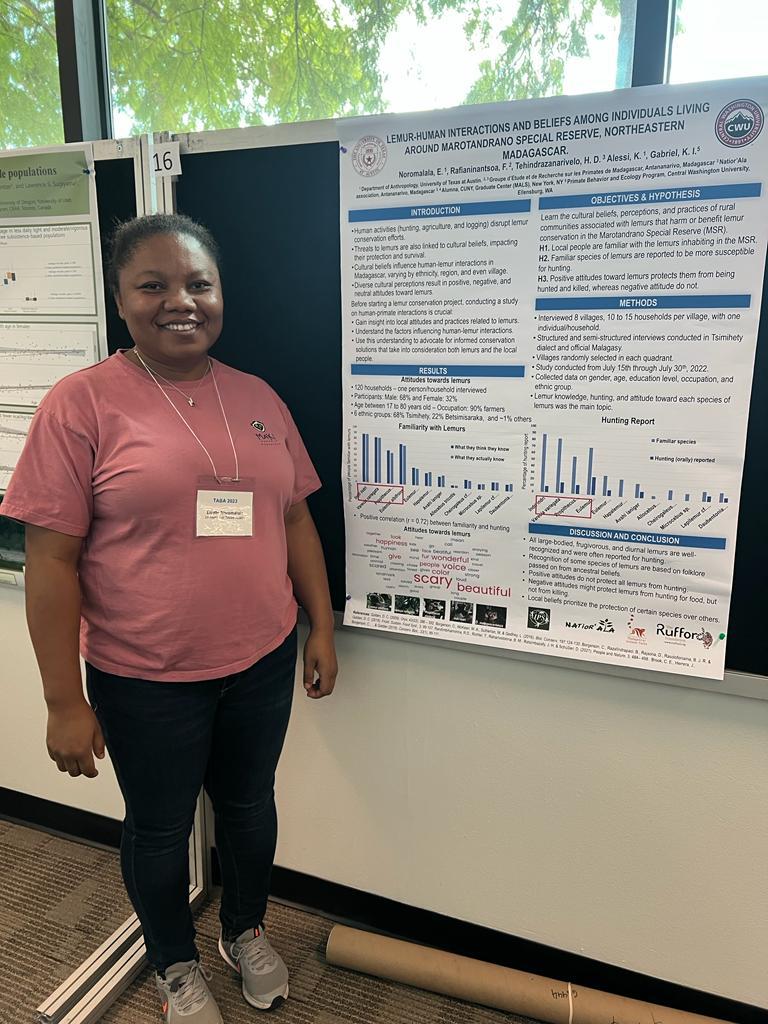Eliette Noromalala
Human activities increasingly impact primate well-being and interfere with their conservation needs. Lemurs of Madagascar face a variety of threats from human activities, such as hunting, logging, and habitat loss in addition to threats linked to human beliefs that impact lemur protection and survival. However, we cannot just assume that lemur conservation issues are the same throughout Madagascar and each place should be examined case by case.

A study that focuses on human-primate interaction and considers both humans and lemurs is crucial since it aims to examine human-lemur conflicts to develop conservation strategies that benefit both humans and lemurs in the area. Therefore, I am examining the anthropogenic activities and belief systems impacting lemur species in the Marotandrano Special Reserve, Madagascar in the context of human livelihood conditions and practices in the surrounding area during the COVID-19 pandemic. With my team, I am conducting interviews in villages surrounding the Marotandrano Reserve that query anthropogenic activities including hunting, logging, agriculture practices, and the factors leading people to depend on the forest as a resource. I am also evaluating human attitudes towards lemur species and specific beliefs and myths. The local people's willingness to conservation will be asked about as well.
In addition to the interviews, I am conducting a lemur population survey in sites that have been affected by high levels of anthropogenic activities. I assume that deteriorated livelihood conditions, during the COVID-19 pandemic, aggravate anthropogenic activities impacting the lemur populations and their habitat. Also, local beliefs may prioritize protecting certain species of lemurs over others.